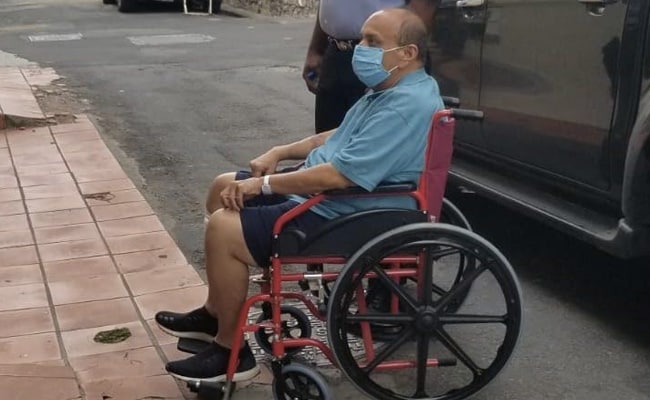Mehul Choksi’s Arrest in Belgium Raises Questions About Extradition and Health Concerns
In a dramatic turn of events, Mehul Choksi, a prominent diamantaire, has been apprehended in Belgium, marking yet another chapter in his tumultuous saga related to the infamous Punjab National Bank (PNB) loan fraud case, which allegedly involves fraudulent activities amounting to over Rs 13,500 crore. Choksi’s lawyer, Vijay Aggarwal, announced on Monday that they intend to appeal against the arrest while emphasizing Choksi’s deteriorating health condition and arguing against India’s extradition request.
Choksi, aged 65, along with his nephew Nirav Modi, has been a fugitive since early 2018, a time when the scale of the PNB scam first came to light. The Central Bureau of Investigation (CBI) and the Enforcement Directorate (ED) have issued warrants against both men for their alleged roles in defrauding the bank. As per the report by[NDTV](https://www.ndtv.com), Choksi’s lawyer highlighted that his client is currently undergoing treatment for cancer and is not a flight risk, contradicting the narrative put forth by authorities seeking his extradition.
What Led to Choksi’s Arrest?
Choksi fled India weeks prior to the revelation of his involvement in the scandal, traveling to Antigua and Barbuda, where he acquired citizenship through an investment program. His legal challenges have escalated since his disappearance from Antigua in 2021, leading to a brief time spent missing before being found in Dominica. Recent reports confirm that Choksi had been residing in Antwerp with his wife, Preeti Choksi, a Belgian citizen, and had plans to relocate to Switzerland before he was detained.
This arrest comes against a backdrop of heightened scrutiny regarding the financial dealings of Choksi and Modi, who allegedly used letters of undertaking (LoUs) and foreign letters of credit (FLCs) to facilitate their fraudulent operations through bribery of bank officials at the Brady House branch in Mumbai. The repercussions of their actions have been monumental; properties worth Rs 2,565.90 crore have either been restored or sold in a bid to recover losses linked to their alleged illicit activities.
Choksi’s Argument: Health and Political Motivations
In a statement reflecting his legal strategy, Aggarwal underscored concerns surrounding Choksi’s health, advocating that his client is unable to be considered a flight risk due to his ongoing cancer treatment. “We believe that it is a political case,” Aggarwal stated, indicating that the defense might aim to frame Choksi’s situation within a broader political narrative rather than purely a matter of financial misconduct. This move could serve to create public sympathy while rallying support from legal circles.
Belgian authorities are faced with the challenge of balancing international extradition requests with their obligations to uphold individual rights, particularly when health issues are at stake. Observers are curious to see how the Belgian court will respond to Choksi’s appeal, especially given the complexities of international law and the nature of the charges against him.
The Broader Context of Choksi’s Legal Troubles
Choksi is not the only high-profile individual connected to the PNB fraud case. His nephew, Nirav Modi, remains incarcerated in the UK following his arrest in 2019. Modi has faced legal setbacks, losing an extradition appeal as UK authorities continue to deliberate over India’s request for his return. The outcomes of these cases could have significant implications not just for the individuals involved but also for India’s financial regulatory landscape and its fight against white-collar crime.
As the legal proceedings unfold, it is critical to understand the broader implications of these cases for India’s reputation in global finance. The PNB fraud scandal has exposed vulnerabilities in banking regulations and oversight, leading to calls for reform within the financial sector. This case serves as a reminder of the complexities associated with transnational crime, particularly in an era of globalization where financial transactions are increasingly without borders.
Future of Choksi’s Case Remains Uncertain
As developments continue, Choksi’s future hangs in the balance. His attorney’s claims of poor health and the assertion that the case is politically motivated will play a pivotal role in the unfolding legal drama. The outcome of the appeal process will likely not only determine Choksi’s fate but could also set precedents for how such cases are handled in the future.
The legal complexities surrounding extradition laws and international treaties will also be scrutinized, as both Indian and Belgian authorities navigate the intricacies of such high-stakes legal matters. Stakeholders from various sectors, including legal experts, financial analysts, and political commentators, will undoubtedly turn their attention to the proceedings as they develop.
With significant media interest and public scrutiny surrounding Choksi’s case, it remains to be seen how this legal battle will evolve and what it may mean for the transparency and accountability of financial institutions in India and beyond.
For more in-depth coverage on related financial crimes and their implications on global banking, visit our section on[financial crime analysis](#) and[international law](#). Additionally, for updates on other high-profile extradition cases, check out[The Guardian](https://www.theguardian.com) and[Reuters](https://www.reuters.com).
DISCLAIMER
We have taken every measure to ensure that the information in this article and on our social media platforms is accurate, verified, and obtained from reliable sources. For feedback or complaints, please contact us at info@hamslive.com.


